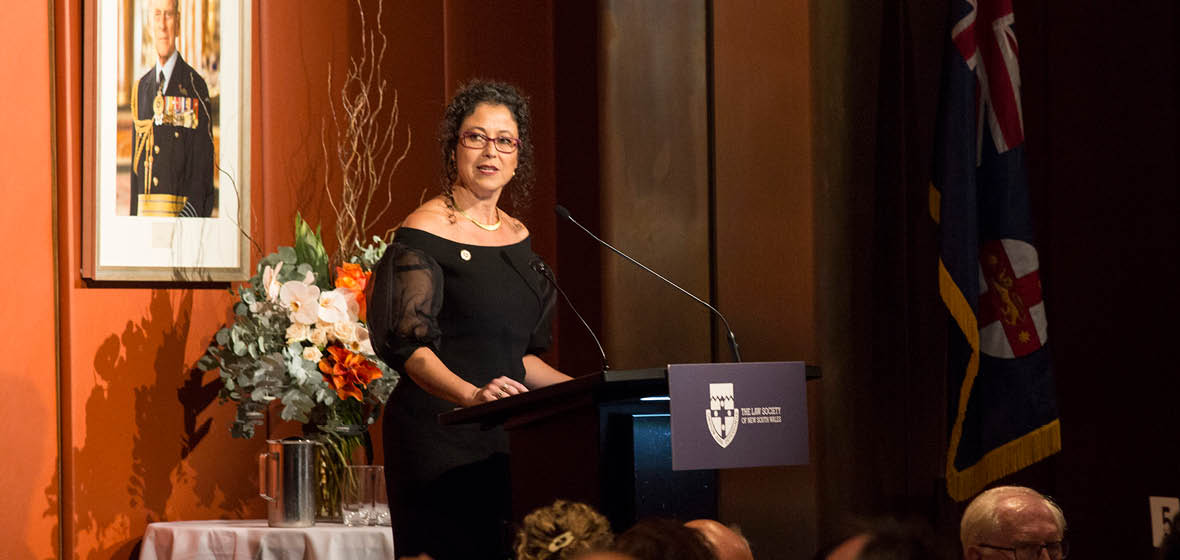Establish a Human Rights Act in NSW, raise the age of criminal responsibility, and raise the rate paid to lawyers doing legal aid work – these are among the 25 recommendations the Law Society of NSW has made in its 2019 State Election Platform sent to all major political parties in December.
The Law Society has so far received responses from the NSW Greens, Labor, and Independent MP Alex Greenwich, which have all been sighted by LSJ. At the time of writing, the Law Society had not received a response from the Coalition, but a government spokesperson indicated the party would be writing to Law Society CEO Michael Tidball in coming days.
Law Society President Elizabeth Espinosa said she hoped all parties – including the Coalition – would come to the discussion table and address these issues directly before the state election on 23 March.
“We are calling on all major political parties and independents contesting the 23 March election to respond to the key law and justice priorities set out in the Law Society’s 2019 State Election Platform,” said Espinosa.
The Law Society’s 36-page Election Platform asks politicians to address 25 recommendations for law reform in their campaigns leading into the election. Increasing legal aid funding and justice facilities for regional areas, and tackling the high incarceration rates of Indigenous Australians feature prominently. The Platform also urges politicians to prioritise defending the rule of law, reminding them of the Law Society’s longstanding position to introduce a Human Rights Act in NSW.
“There is a clear need for better safeguards of individual rights and freedoms in NSW,” says the document published on the Law Society’s website.
Among the recommendations is an “urgent” call to raise government-funded rates for lawyers doing legal aid work to $250 per hour. This hourly rate has remained stagnant at $150 per hour since 2008, despite Australian Bureau of Statistics data showing that average weekly earnings for Australians have increased by 46 per cent over the same time period.
“The combination of a low hourly rate paid to private practitioners and insufficient time claimable under the fee scales means the system is in crisis,” the document says.
Legal Aid NSW’s 2017-18 Annual Report showed that demand for legal aid services had increased by almost 15 per cent over the past five years, and regional areas in particular were suffering from a lack of available lawyers.
“If the hourly rate and timescales for undertaking legal aid work are not increased urgently, we will continue to see experienced solicitors reluctantly withdraw from legally aided matters,” President Espinosa told LSJ.
In a response sent to the Law Society on 11 February, the Greens committed to increasing legal aid rates to $250 per hour. Labor’s response said it would “review” the current rates, while Independent Alex Greenwich did not directly respond to this request.
Labor offered non-specific support on a number of issues, including a recommendation to expand the NSW Drug Court to the Illawarra. Shadow Attorney-General Paul Lynch also broadly committed to reducing the incarceration rate in NSW – which is currently at an all-time high of 13,165 according to figures released by the NSW Bureau of Crime Statistics and Research in January.
Lynch said Labor supported the principle of Justice Reinvestment and would commit to allocating $4.5m to funding pilot projects in NSW to support this policy.
The most comprehensive response came from NSW Greens, who agreed to support every Law Society recommendation, noting additional support on some fronts such as raising the age of criminal responsibility. The Greens indicated it would like the age raised from 10 to 16 – four years beyond the minimum 12 that the Law Society has called for, as recommended by the Northern Territory’s Royal Commission into the Protection and Detention of Children in 2017.
A two-page letter from Alex Greenwich offered broad support for Indigenous justice issues, defending the rule of law and promoting business innovation and investment, but did not make any direct promises.




